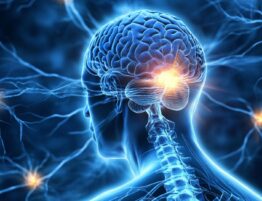Intermittent fasting has become increasingly popular, with methods like the 5:2 diet leading the way. This approach involves dramatically reducing calories on certain days each week. Research shows calorie restriction can benefit the body long-term by improving mood and sleep quality.
You may experience hunger and irritability initially, but these symptoms fade as your body adapts. Intermittent fasting benefits extend far beyond weight loss, especially for brain function. You’ll likely see improvements in performance and focus as your metabolism shifts. Most people feel significantly better by their fourth or fifth fasting cycle.
Unlocking the Brain Benefits of Intermittent Fasting
Intermittent fasting offers cognitive benefits for the brain that go far beyond weight loss. Key brain advantages include increased neuroplasticity and enhanced cell repair. Both help protect against mental decline. Fasting promotes brain protection by boosting chemicals like BDNF (brain-derived neurotrophic factor).
BDNF supports nerve cell growth and strengthens neural connections. This enhances learning and memory. Fasting also reduces harmful inflammation in the brain. Chronic inflammation can seriously damage cognitive function.
Enhanced brain cell repair happens through autophagy. This cellular process removes waste and damaged parts. It may protect against diseases like Alzheimer’s. Fasting also improves brain energy efficiency, creating sharper focus and mental clarity. Animal studies show fasting increases stress resilience and improves mood.
Main brain benefits of fasting include:
- Neuroplasticity: Fasting boosts BDNF production, helping nerve cells grow
- Cell Repair: Activates autophagy to keep brain cells healthy
- Brain Protection: May reduce Alzheimer’s disease risk
- Mental Clarity: Improves focus by optimizing energy use
- Research Promise: Human studies look encouraging but need more data
Human research shows similar promise to animal studies. However, we need more comprehensive data. Intermittent fasting is more than a diet – it’s a lifestyle that can rewire your brain. By boosting BDNF and reducing harmful stress, fasting supports long-term brain health. This could unlock sharper thinking and better emotional balance.
Mental Clarity and Focus: Why Fasting Feels So Good
Mental clarity drives many people to try intermittent fasting. Users often report clear-headed feelings during fasting periods. Improved attention and sharper focus are common benefits. Fasting reduces brain fog and enables clearer thinking. Many people notice better decision-making as their minds feel less cluttered.
Science backs up these experiences. Fasting increases BDNF, which supports nerve health and brain function. This may boost focus and mental clarity. Fasting also reduces inflammation, a major cause of brain fog. It stabilizes blood sugar to prevent energy crashes that cloud thinking.
During fasting, your body makes ketones. These serve as efficient brain fuel, promoting steady alertness. Users notice these benefits with popular methods like 16:8 or alternate-day fasting. For example, someone skipping breakfast might feel heightened focus by midday.
Research is ongoing, but early studies support user experiences. Fasting offers a practical way to boost brain performance. When done thoughtfully, intermittent fasting can unlock sharper thinking and enhanced mental clarity.
Memory and Cognitive Function: What Science Says
Research on fasting and memory shows promising brain benefits. Intermittent fasting may improve learning, memory, and focus. It supports fasting neuroprotection and reduces harmful stress and inflammation. These processes can damage nerve cells and hurt memory. Fasting helps protect brain cells and improves overall function.
Fasting significantly increases BDNF levels. BDNF promotes nerve growth and strengthens neural connections. This improves learning and memory retention. By reducing oxidative damage, fasting helps preserve memory-related brain areas. Human trials show similar benefits, with better recall and focus during fasting periods. A 16:8 fasting schedule may sharpen attention by stabilizing blood sugar.
Fasting triggers autophagy, which cleans up cellular waste. This process clears damaged cells and supports brain protection. Reduced inflammation further guards against mental decline. Studies link these effects to better performance on memory tasks. Some trials show alternate-day fasting improves verbal memory.
Research is promising, but human studies are still developing. Current findings suggest fasting supports brain health by reducing various stressors. The link between fasting and memory makes it compelling for mental clarity. When done thoughtfully, intermittent fasting may improve brain function and focus. More studies will clarify its full impact.
The Science Behind Fasting, Ketosis, and Brain Performance
Fasting’s brain benefits come from a key metabolic shift. When fasting, your body stops burning glucose and starts burning fat instead. This creates ketosis, which produces ketones. Ketones are cleaner, more efficient brain fuel than glucose.
Ketosis improves brain performance, mental clarity, and focus. It provides steady energy without glucose spikes and crashes. During ketosis, your brain uses ketones as its main fuel source. This supports sharper thinking and faster mental processing.
Fasting triggers autophagy, clearing damaged cells and boosting brain function. It also reduces inflammation, which can seriously hurt mental performance. Ketones improve communication between nerve cells. This leads to better memory and problem-solving skills.
Key aspects of fasting and cognitive brain function:
- Ketosis Fuel: Ketones provide efficient, steady brain energy
- Mental Clarity: Fasting reduces brain fog and sharpens focus
- Autophagy: Clears damaged cells, improving thinking
- Less Inflammation: Supports better mental performance
- Mood Stability: Ketones help balance brain chemicals
As your brain adapts to ketosis, thinking improves even more. Users often report better focus and less brain fog. Many find that 16:8 fasting leads to clearer thinking by midday. Ketosis also improves mood by balancing brain performance.
This metabolic change makes fasting powerful for mental performance. When done carefully, it can provide lasting brain benefits and sharper function over time.
Fasting and Brain Protection: Long-Term Cognitive Health
Intermittent fasting supports long-term brain health by promoting brain longevity. It protects nerve cells and enhances their function. Research suggests it may reduce risk of brain diseases like Alzheimer’s and Parkinson’s. Fasting triggers autophagy, which clears damaged cells from the brain. This keeps nerve cells healthy and supports mental clarity while reducing harmful inflammation.
Fasting increases BDNF production. This protein strengthens neural connections and improves memory, learning, and focus. Ketones from fasting serve as efficient brain cognitive function. They provide steady energy that reduces harmful stress compared to glucose. This protects nerve cells from damage and supports long-term mental sharpness.
Fasting also improves blood flow to the brain, further supporting brain health. Key protective benefits include:
- Autophagy: Clears damaged brain cells and supports nerve health
- BDNF Boost: Strengthens neural connections and helps memory
- Ketone Power: Provides efficient, steady brain energy
- Less Inflammation: Protects brain function from damage
- Prevention: Regular fasting promotes long-term brain health
Making fasting a regular habit can actively protect your brain. Popular methods like 16:8 or alternate-day fasting fit easily into daily life. These provide protective benefits that help maintain brain function as you age. Regular fasting neuroprotection may help delay or prevent mental decline. It offers a simple yet powerful way to invest in long-term brain health and mental strength.
Practical Tips to Maximize Cognitive Benefits While Fasting
Smart lifestyle choices can boost the brain benefits of intermittent fasting. To maximize improvements in focus and memory, follow these practical strategies:
- Choose Your Method: Pick a consistent fasting approach like 16:8 or 5:2. Start with shorter fasts to let your body adjust gradually.
- Stay Hydrated: Drink plenty of water or herbal teas during fasting periods. Dehydration can seriously cloud your thinking and reduce brain performance.
- Get Quality Sleep: Aim for 8 hours of good sleep each night. This supports brain repair and optimal mental function.
- Eat Brain-Boosting Foods: During eating periods, focus on nutrient-rich foods. Choose blueberries, nuts, and fatty fish. These provide omega-3 fats and antioxidants that enhance brain function.
- Skip Processed Foods: Avoid foods high in sugar or artificial additives. These can cause energy crashes and reduce fasting’s brain benefits.
Key strategies for success:
- Stay Consistent: Stick to your chosen fasting method for best brain benefits
- Include Healthy Fats: Add foods that support ketosis and mental clarity
- Exercise Gently: Try walking or yoga to boost blood flow to your brain
- Manage Stress: Use meditation or deep breathing to maximize brain gains
- Eat Balanced Meals: Time your meals well and focus on good nutrition
Add healthy fats to your diet to fuel ketosis and support mental clarity. Regular gentle exercise like walking or yoga helps increase blood flow to your brain. Managing stress through meditation or deep breathing is crucial. Chronic stress can cancel out brain improvements. Avoid overeating during eating windows, which can cause sluggishness and reduce mental sharpness.
Following these guidelines consistently will help you maximize intermittent fasting’s brain benefits and support long-term mental health.











I've given up... the stress her office staff has put me through is just not worth it. You can do so much better, please clean house, either change out your office staff, or find a way for them to be more efficient please. You have to do something. This is not how you want to run your practice. It leaves a very bad impression on your business.
Please, leave your review
Write a comment: